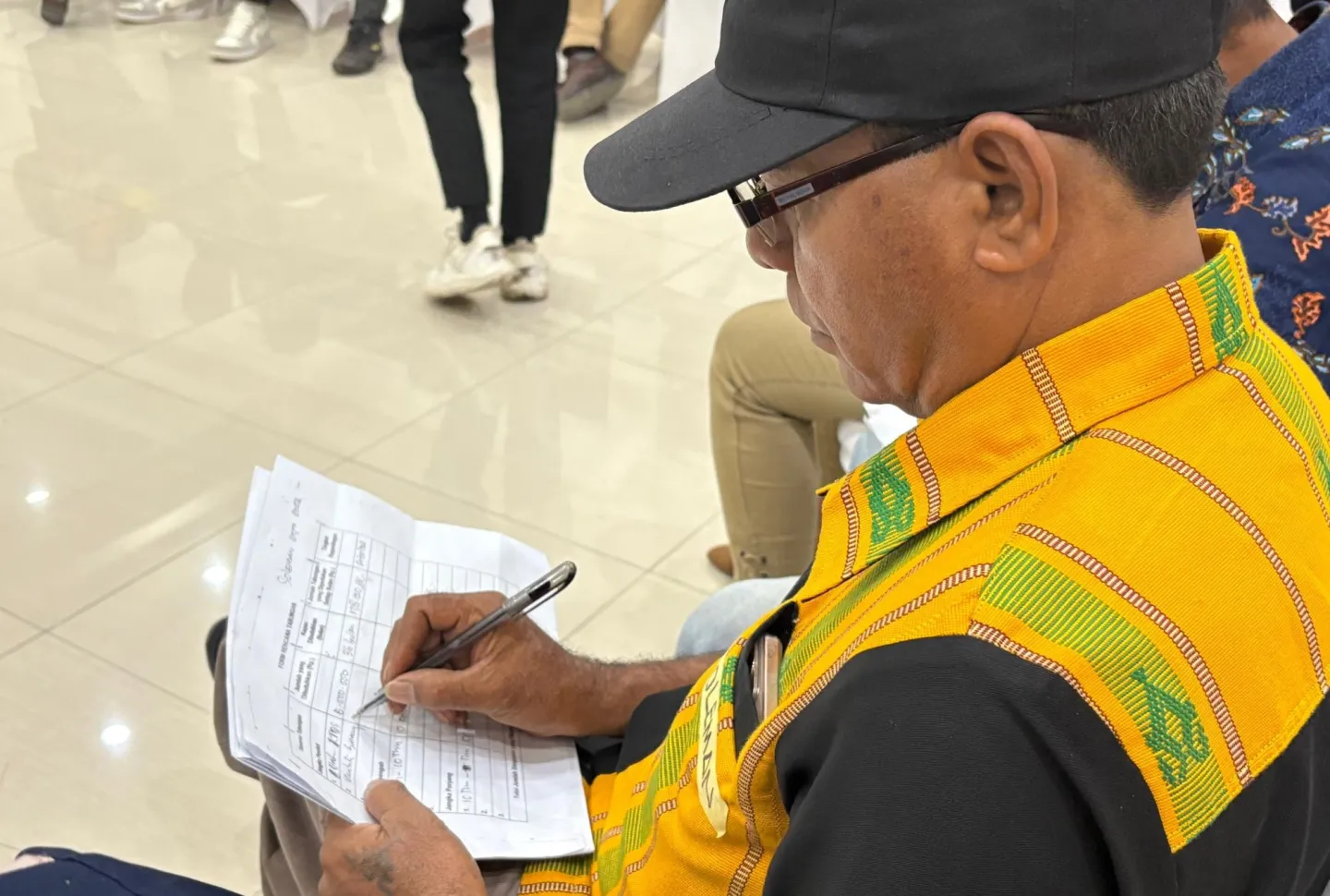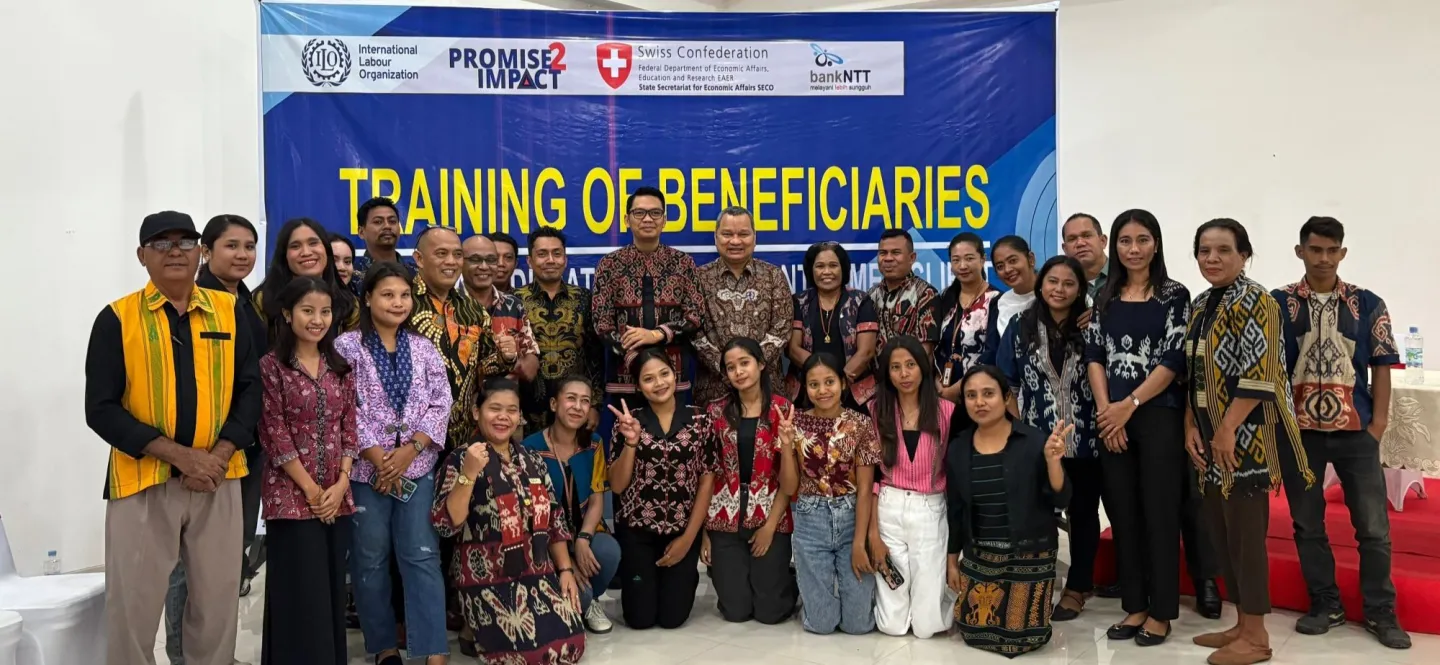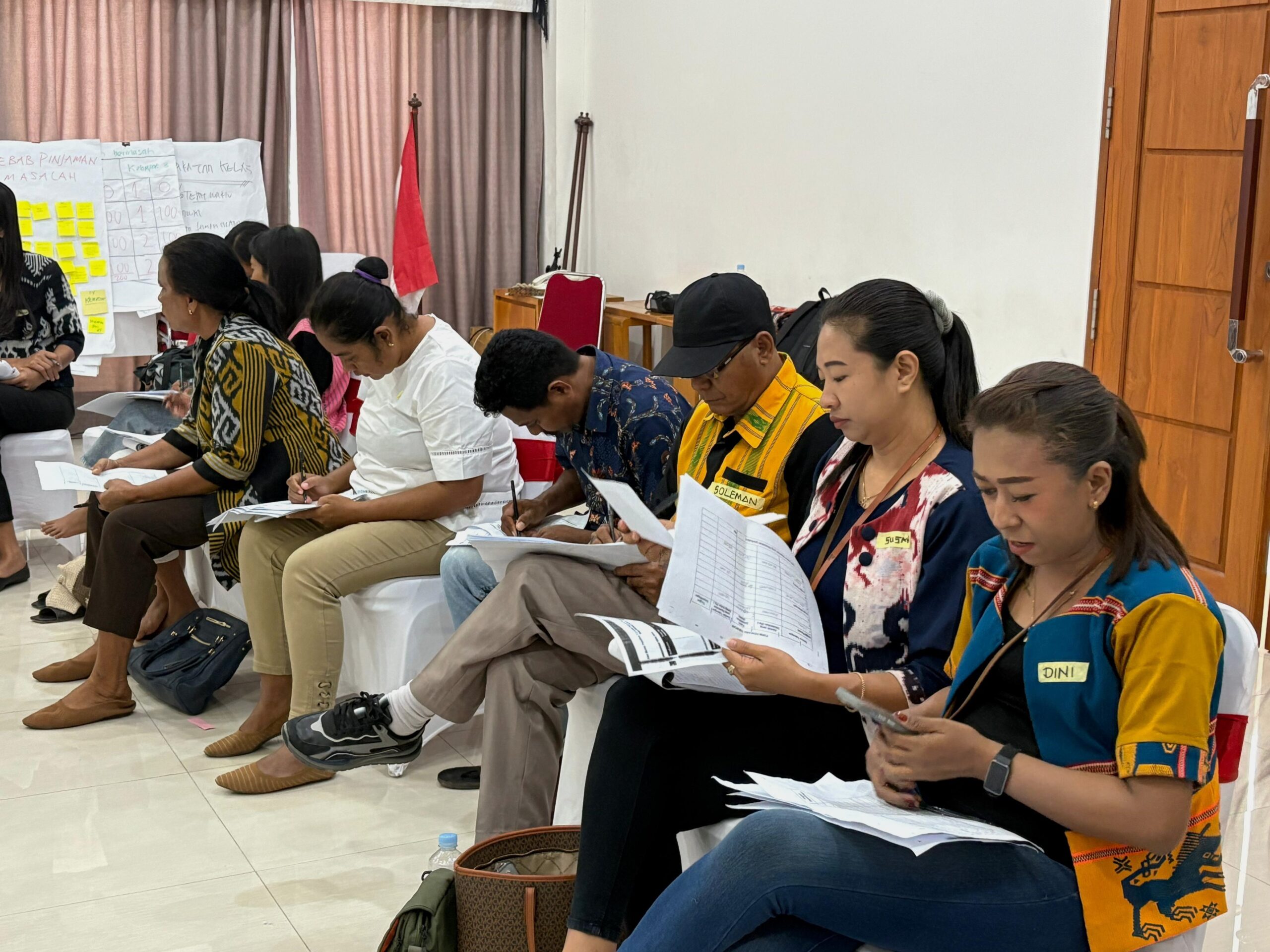WAINGAPU, East Sumba, East Nusa Tenggara, Indonesia (ILO News) – Bernadine Isabella Leidabula, a customer service officer at the Lewa Branch of Bank East Nusa Tenggara (NTT) in East Sumba, has gained the ability to better calculate selling prices, manage business profit and loss and organize her financial records. With her new financial knowledge, she is also able to support her mother’s small catering business.
© A. Alexandra/ILO
Bernadine, or Dini for short, is one of the 24 participants who joined the three-day financial education training in Waingapu, East Sumba, on 14 to 16 July 2025.
Bernadine was one of the 24 participants who joined a three-day financial education training jointly organized by the ILO’s Promoting Micro and Small Enterprises through Entrepreneurial Access to Financial Services (Promise II Impact) project, funded by the Swiss State Secretariat for Economic Affairs (SECO), in collaboration with Bank NTT. Held in Waingapu, East Sumba, from 14 to 16 July 2025, the training marked the fourth session since 2023, reaching a total of 298 participants.
In East Sumba, many small business owners and workers manage their finances based on instinct and experience, often without access to formal financial education. Low financial literacy can lead to uninformed decisions, resulting in a lack of savings, poor budgeting or overreliance on informal loans, factors that increase the risk of financial hardship, especially during illness, emergencies or unexpected expenses.
This training programme, therefore, aimed to improve practical financial knowledge and understanding of budgeting, saving, profit and loss, financial goals and accessible financial products. Originally targeted at Bank NTT clients and officials, the training also attracted a diverse group of participants, including young workers and seasoned entrepreneurs.
“I have worked for the bank for over a decade and recently received financial training, but I found this ILO-led programme both refreshing and insightful,” Bernadine shared. “This kind of training is needed here in East Sumba, especially for young people, as financial services are not easily accessible in places like Waingapu. I hope more people get the chance to join in the future.”
Similarly, Soleman Dapa Doda, a 56-year-old grocery kiosk owner who typically keeps his money in cash at home, admitted that the training changed his mindset about banking. He had rarely used banking services before and preferred to invest his money in purchasing land instead. “There are very few ATMs, and sometimes they are broken. So, it felt safer this way. I usually use my income to buy land instead of saving in the bank,” he said.
Originally from Southwest Sumba, Soleman migrated to East Sumba more than 30 years ago and built a life and business with his wife in Waingapu. Together, they managed to send all four of their children to university, a rare achievement in many rural parts of Indonesia. While land investments have their advantages, Soleman realized through the training that keeping some funds in a bank could help him prepare for emergencies, earn interest and provide greater security for his family.

© A. Alexandra/ILO
Soleman Dapa Doda during the group class exercise on budgeting.
“This is my first financial training, and I have learned the benefits of saving money in the bank. I will apply this for my family’s safety and teach my children to save too,” he said. “I also learned how to properly calculate production costs and set prices, which I never really did before.”
The training also featured support from East Sumba’s Vice Regent, Yonathan Hani, who encouraged participants to shift their mindset for long-term change. “Poverty is not solely about having a low income. It is also about how well people manage their resources,” he explained. “Financial education like this is essential for breaking the cycle of poverty. It encourages better habits and empowers people to think ahead and plan for a more secure future.”
Financial education like this is essential for breaking the cycle of poverty. It encourages better habits and empowers people to think ahead and plan for a more secure future.
Yonathan Hani, East Sumba Vice Regent

© A. Alexandra/ILO
Participants from Waingapu, East Sumba, together with East Sumba Vice Regent, Yonathan Hani and Head of Bank NTT’s Waingapu Branch, Yusuf Hanggar Mawolu.
According to the 2022 National Survey on Financial Literacy and Inclusion by Indonesia’s Financial Services Authority (OJK), NTT Province continues to lag behind other provinces in both financial literacy and access. This gap affects not only individuals and households but also limits the growth and resilience of MSMEs, which are key drivers of the local economy.
“The training gives participants from micro, small and medium enterprises or MSMEs a solid understanding of available financial options, including Kredit Merdeka, a collateral-free microcredit facility designed to support small businesses, making them more competitive and capable of creating jobs,” said Yusuf Hanggar Mawolu, Head of Bank NTT’s Waingapu Branch. “It also reflects our ongoing commitment to empowering local entrepreneurs and strengthening the people’s economy in East Sumba and across NTT.”
Building on its success in East Sumba, the ILO’s Promise II Impact project plans to expand and scale up the training programme to reach more MSME players both within East Sumba and in other project intervention areas.
